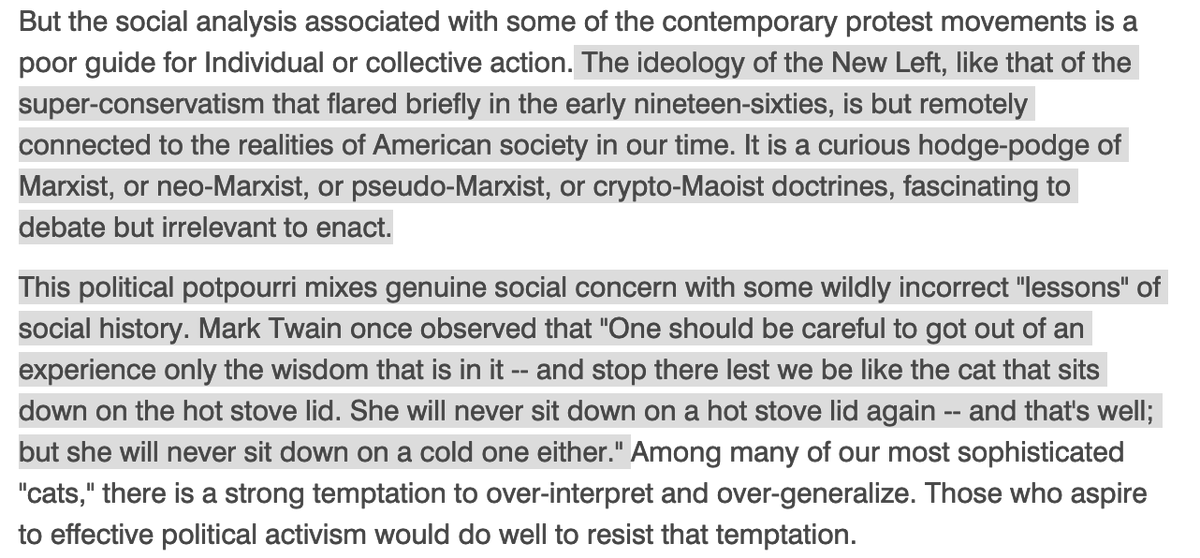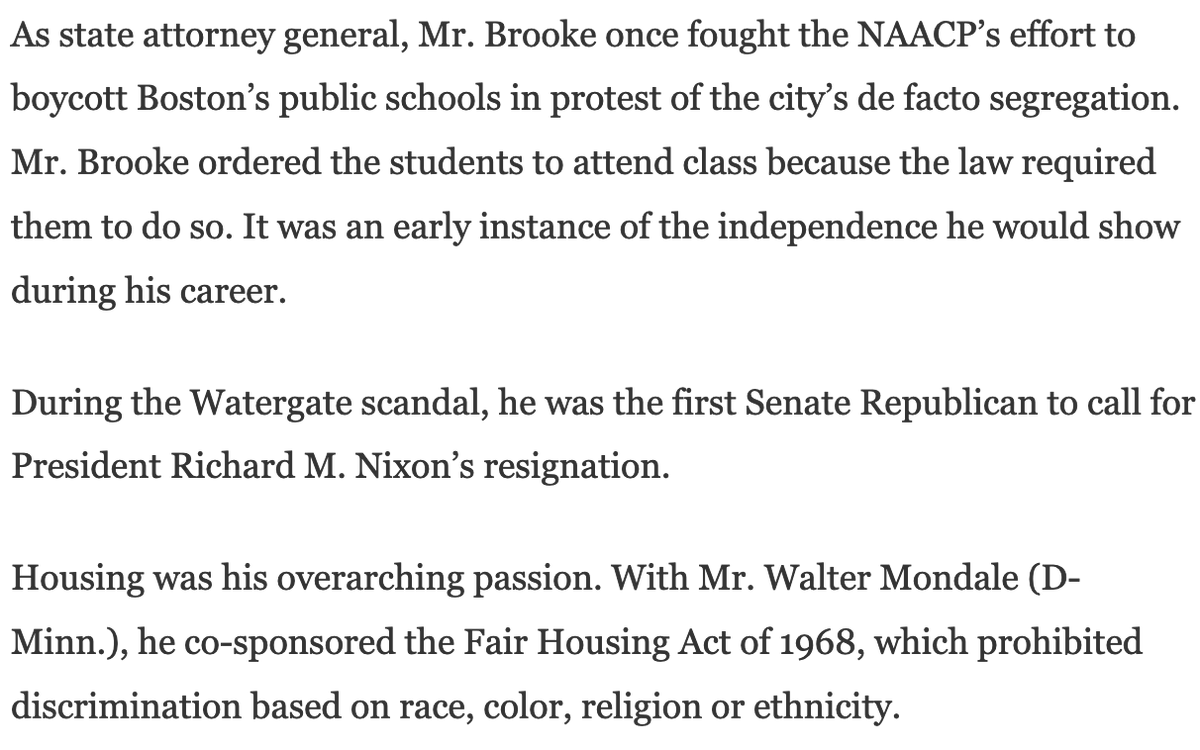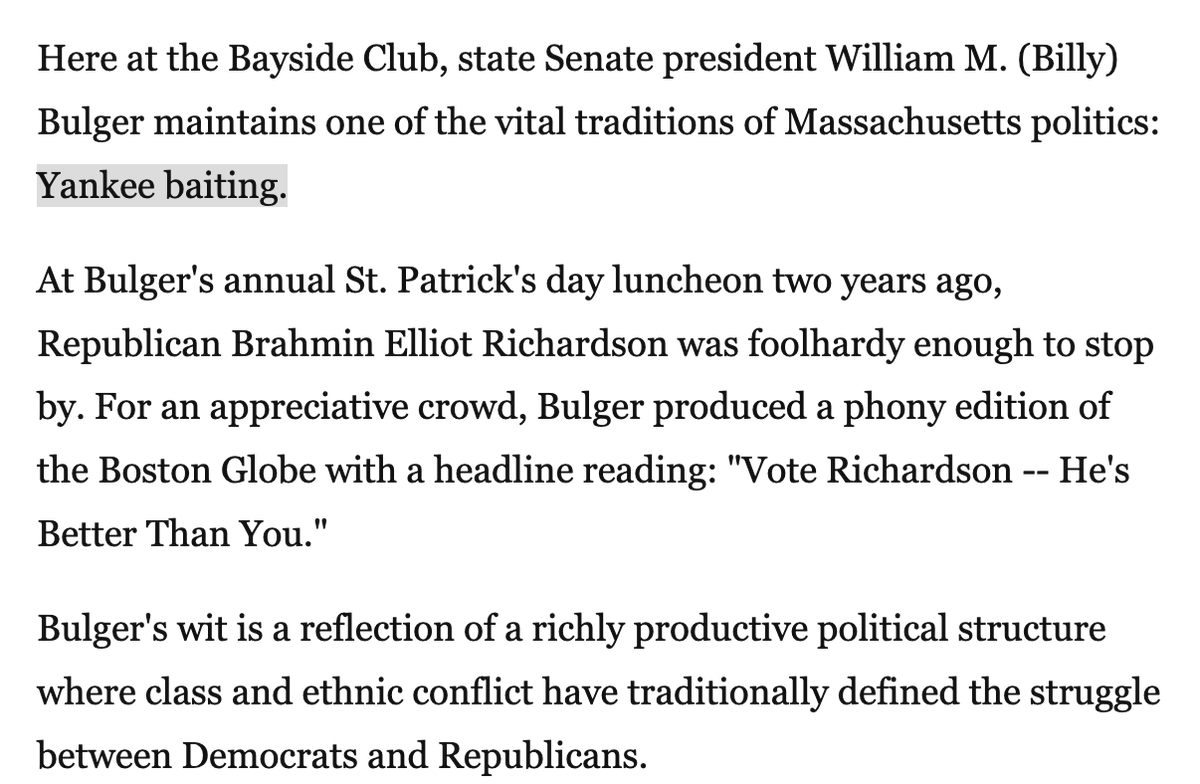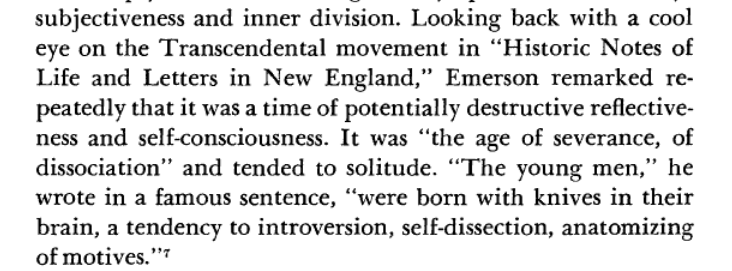
This is what I mean when I say the northern Democrat version of American history and political science is a persistent problem. It's especially destabilizing when deployed in MA, which it rarely was before the last decade.
masspoliticsprofs.org/2021/02/16/mas…



masspoliticsprofs.org/2021/02/16/mas…




The Atlantic in *2015*: "On election night, the news web site Boston.com ran the headline 'Dear America, Our Republicans Are Better Than Yours.'" 

Note the emphasis on not being a national leader, making up one's own mind, & being tall, "charismatic & vigorous." Compare it with this piece on Baker from 2015, which also says, "It’s tempting to think of Baker as Romney, only taller (he’s 6 foot 6)...and with...charisma."🤣 

I'm surprised at how many references there are in the mainstream media, even recently, to this aspect of MA political culture. They're often accompanied by a pretty condescending and IMO inaccurate analysis of local independents and Democrats. 2017: 



Lol at this from 2015.
For the last time: northern and southern "conservatism" are not at all similar. This is why the modern GOP became awkward and fell apart.



For the last time: northern and southern "conservatism" are not at all similar. This is why the modern GOP became awkward and fell apart.

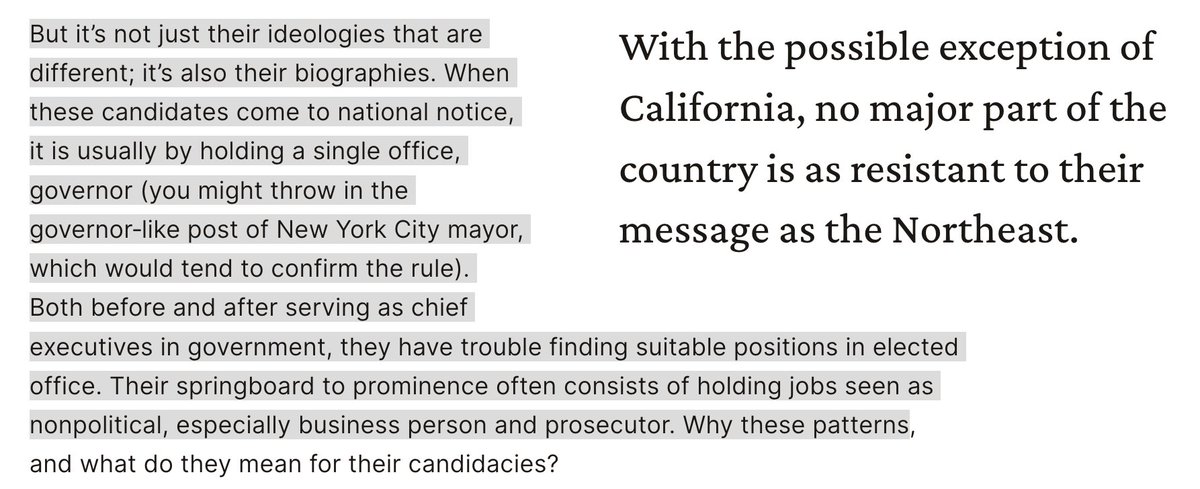


I am amazed by how many of these articles say that MA elects Republicans when they need an "adult." Everyone elected to a leadership role here was an "adult," regardless of party. The problem is the bureaucrats.
cato.org/commentary/how…
cato.org/commentary/how…

By "adult," these writers seem to mean someone who doesn't constantly stir up divisive drama. Which is correct, but Democrats never did it here either, because it's contrary to leadership. It's a constant media complaint now that Baker won't emote about national "controversies." 







The 2015 Atlantic piece has a lot of the condescension I referred to, which is in this case appears to be projection: 

The whole piece is pretty telling. What's frightening is the casual assumption that most people don't judge anything on the merits, only by partisan affiliation. Despite all the hints that this isn't the norm in MA. 






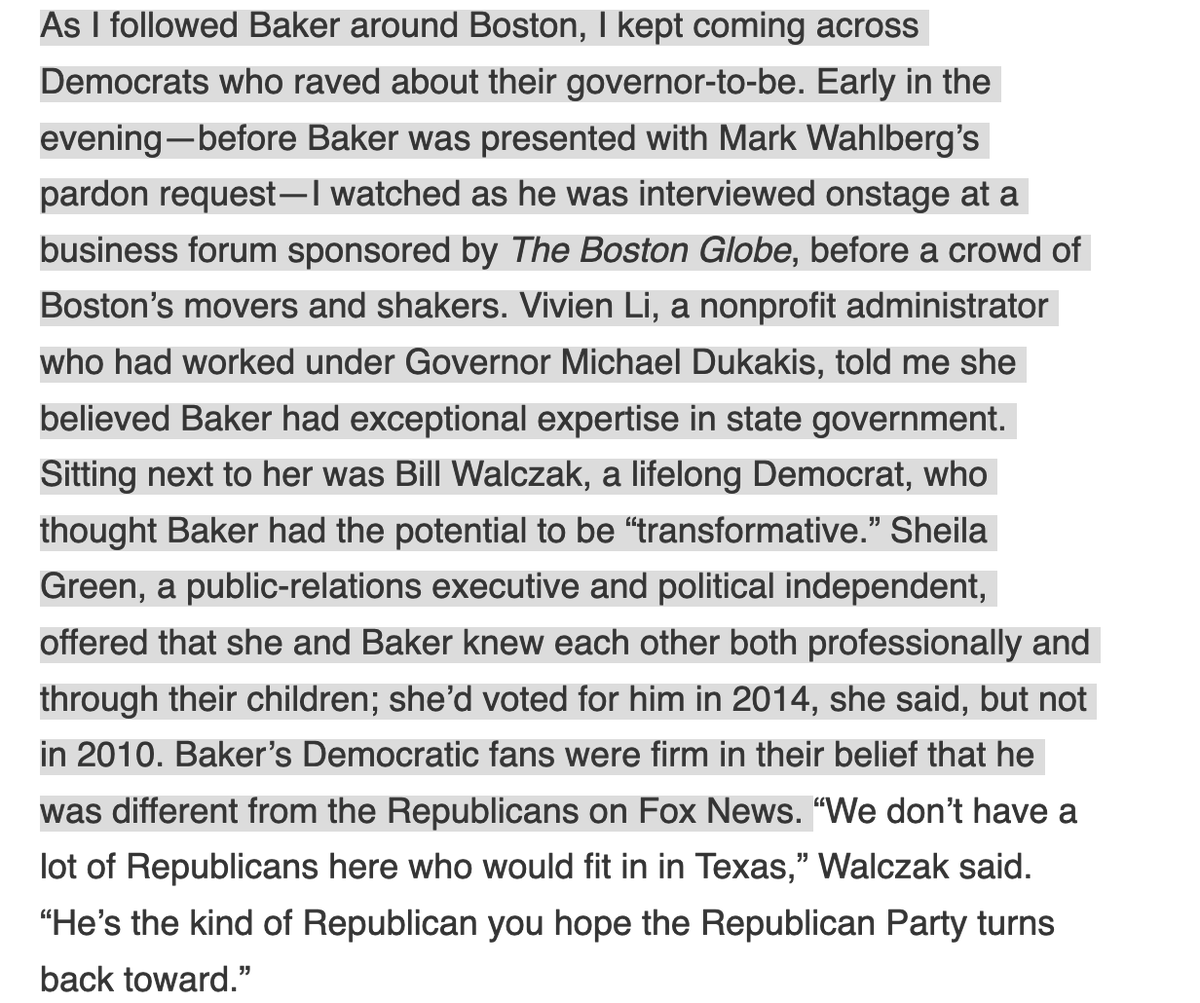
The third piece I've seen that projects extreme levels of narcissism and thoughtless partisanship onto MA Democrats. 



Also, notice how both Brooke and Baker keep trying to convert the wayward with an earnest explanation of civic responsibility.
• • •
Missing some Tweet in this thread? You can try to
force a refresh






